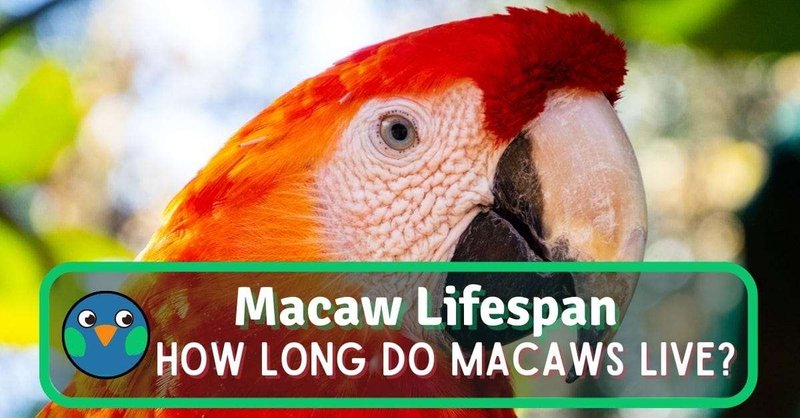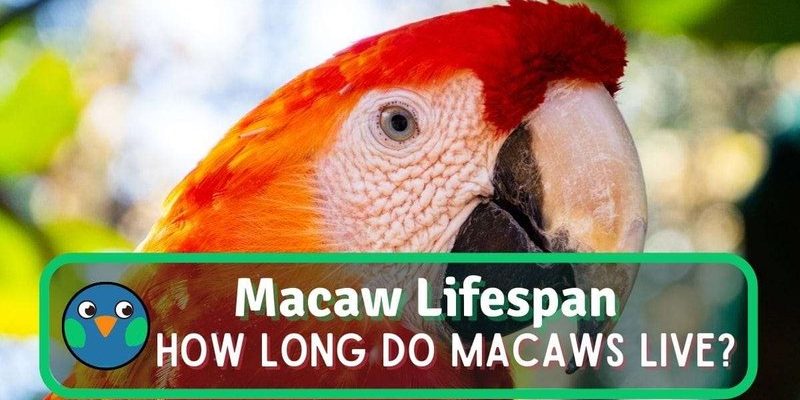
In the wild, macaws can live for decades, sometimes even outliving their human companions! It’s like having a feathered friend who’s also a family member—one that will be around for a very long time. Much like a dog or a cat, macaws require care, attention, and love, but they also come with their unique challenges and rewards. So, let’s dive into the fascinating world of macaws and unpack just how long these amazing birds can live, along with what to expect as they grow.
The Lifespan of Macaws
When it comes to their lifespan, macaws are quite impressive. On average, you can expect a macaw to live between 30 to 50 years depending on the species. Some larger breeds, like the Hyacinth Macaw, can live up to 60 years in captivity! Think about it: that’s more than just a pet; it’s a lifelong commitment.
In the wild, their lifespan can be shorter due to factors like predators, food availability, and environmental challenges. However, in captivity, where they are protected from dangers and receive proper care, they tend to thrive for many years. It’s important to remember that with this long lifespan comes the responsibility of providing a suitable habitat, a proper diet, and regular veterinary care.
Factors Affecting Lifespan
Several factors can influence how long your macaw will live. Understanding these can help you better care for your feathered friend. Here are a few key ones to consider:
- Diet: A balanced diet rich in fruits, vegetables, seeds, and nuts is essential. Poor nutrition can lead to health issues that shorten a macaw’s life.
- Exercise: Macaws need plenty of physical activity. Providing a spacious cage and allowing time outside helps keep them healthy and happy.
- Environment: A safe, clean, and engaging environment reduces stress and promotes well-being. Think of it like providing a relaxing home for your friend.
- Veterinary Care: Regular check-ups with an avian vet are crucial. Early detection of health issues can make a significant difference in a macaw’s lifespan.
By paying attention to these factors, you’re not only enhancing their quality of life but also helping them live longer.
Macaw Maturity: When Do They Become Adults?
You might be wondering about maturity—when do macaws transition from quirky little chicks into adult birds? Most macaws reach adulthood between 3 to 6 years of age. However, they continue to grow and develop socially well into their teenage years, which can last until they’re about 7 or 8.
During this phase, you’ll notice their behavior changing significantly. Young macaws are often very curious and playful. As they mature, they may become more territorial or selective about their interactions with people and other pets. It’s like watching a human teenager navigating friendships and boundaries—it can be a bit tumultuous but also rewarding.
Understanding Lifespan Differences Among Species
Not all macaws are created equal when it comes to lifespan. Different species can have widely varying lifespans. For example:
- Blue and Gold Macaw: These beauties typically live 30 to 50 years.
- Scarlet Macaw: Known for their striking colors, they can also live 30 to 50 years.
- Hyacinth Macaw: The largest of the macaws, they have an impressive lifespan of 50 to 60 years.
Understanding these differences helps you know what to expect, which adds to being a responsible owner.
The Importance of Socialization
Macaws are highly social creatures. They thrive on interaction, whether it’s with their human companions or other birds. In fact, lack of socialization can lead to behavioral issues and shorten their lifespan. Think of socialization as part of their diet—it’s just as essential!
Here are some tips for ensuring your macaw stays socialized:
- Daily Interaction: Spend time talking, playing, and bonding with your macaw. They love attention!
- Introduce Other Birds: If comfortable, introducing them to other birds can enhance their social skills.
- Toys and Enrichment: Provide plenty of toys and activities to stimulate their minds and keep them engaged.
When you invest time in their socialization, you’ll likely notice happier and healthier behaviors, leading to a better quality of life.
Health Issues and Lifespan
As with any pet, macaws are susceptible to specific health issues that can impact their lifespan. Some common concerns include:
- Obesity: Due to improper diet or lack of exercise, obesity can lead to serious health problems.
- Feather Plucking: Stress or boredom can cause feather plucking, which can lead to skin infections.
- Respiratory Issues: Poor environmental conditions can lead to respiratory problems, often exacerbated by dust or molds.
Being aware of these issues and taking preventive measures can go a long way in ensuring your macaw lives a long, healthy life.
Final Thoughts on Macaws and Lifespan
In conclusion, macaws can be delightful companions that bring energy and joy into your life for many years. Their potential lifespan of 30 to 60 years means that bringing one into your home is a significant commitment. Understanding their needs, social behaviors, and health concerns can ensure that these beautiful birds thrive under your care.
So, if you’re ready to welcome a macaw into your life, remember that it’s not just about the time you spend together but the quality of that time. With the right attention and love, your feathered friend can be with you for a lifetime.

